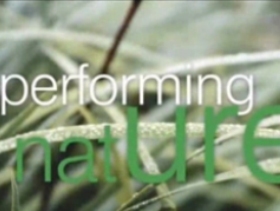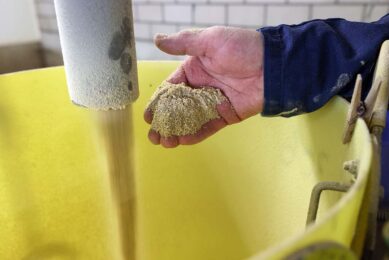Day 1: Delacon Performing Nature Symposium

Austrian company Delacon – a pioneer in the production and marketing of phytogenic feed additives – brought 250 people together at its Performing Nature Symposium in Greece. On behalf of Pig Progress, Feed Mix editor Emmy Koeleman is present.
On the beautiful island of Crete, the first day of the symposium was full of talks about pigs, poultry and why producers should have a plan B.
Helmut Dedl, president of the company, officially opened the symposium by briefly looking back to the 30 years of Delacon existence. Having started as a small company, the company is still not very big (70 employees).
It stands out, however, because of its long history in phytogenics and essential oils and its current strong R&D focus. “We are very careful in our claims,” said Dedl, addressing that the company spends 10% of its turnover in research activitities and trials.
Boundaries
Prof John Hodges, Austria, kicked off the speaker session by talkng about ‘boundaries in animal production’. Being an animal geneticist himself, he emphasised that the agricultural sector should be careful in the application of genetically modified (GM) crops and animal cloning.
He explaned that some boundaries are vital (ancient) whereas ohers may be less vital. This should be taken into account when ‘playing with nature’. According to Hodges the industry also focuses too much in making current production systems more efficient instead of having a plan B in mind. He advocated increasing the support for small rural farmers.
“This way, we might have more change in safeguard future world food supplies instead of letting megafirms grow even bigger,” according to Hodges. Plan B is needed because the industry has reached the green plateau regarding the use of fertiliser in crops, in his opinion.
“I think GM crops are not the silver bullet, relying on them to feed the world is too tricky,” said Hodges.
Reduce the variance
Dennis DiPietre, pig consultant from the US explained the audience that producers should not work with averages anymore, but pay more attention to the individual animals. Variance of the batch already begins in the womb, where piglets are competing with each other. This is reflected throughout the whole growing period.
According to DiPietre, most farmers do calculations with average numbers (weight, Feed Conversion Ratio, etc.) and also make decisions based on these averages. “However, to be able to create a full value pig (the weight and age where the pig is most value) we have to decrease the variation within a batch of pig,” said DiPietre.
“At the moment, pig farmers are losing too much money, simply because most pigs are not optimal.” By measuring the individual weights (per week for example) we have access to the ‘hidden information’. This information can be used to find out where the variance comes from and what can be done about it.”
AGP alternatives
Wilhelm Windisch, University of Natural Resources and Applied Life Sciences in Vienna, Austria, gave a clear summary on the current alternatives for antibiotic growth promoters (AGPs). He mentioned organic acids, probiotics, phytogenics, enzymes, functional fibres and heavy metals as the current options.
Examples of phytogenics include oregano, thyme, rosemary, cinnamon, clove and anise. Some of these products or a combination can improve feed intake and imprive the digestion and performance (mostly trough the stimulation of digestive juices in the digestive tract).
Swine challenges
Dari Brown from Land O’Lakes in the US ended the day with a nice presentation in which she highlighted the current trends in the North American swine industry. These include: the economic crisis, increased use of Dried Distillers Grains and Solubles (DDGS), increased use of synthetic amino acids, rising concerns regarding the use of AGPs, animal welfare and handling concerns and increased litter sizes among others.
“The last six months we hear a lot about the future ban on AGPs in the US and we notice that the pressure on the sector in increasing. Many feed companies and research institutes are increasing their efforts to test alternative products such as phytogenics, so when the ban is implemented we are ready to serve the market,” Brown explained. Brown also addressed the trend of increasing litter sizes may face other problems at farm level. “The number of piglets born alive may drop and stillborns may increase per litter. Therefore, animal nutritionists are also focusing on evaluating natural products to improve piglet birth weights.
Brown also advocated better care and nutrition programmes for sows (multi phase feeding programmes, parity feeding, use of alternative ingredients etc).
Company
Delacon is known for their products: Fresta F Conc (which will be named Fresta F from January 1st 2010), Aromex, Biostrong, Enviro Plus, Rumex and Myco Ad.
Related website:
• Delacon©Phytogenic Feed Additives
Join 18,000+ subscribers
Subscribe to our newsletter to stay updated about all the need-to-know content in the pigsector, three times a week. Beheer
Beheer










 WP Admin
WP Admin  Bewerk bericht
Bewerk bericht